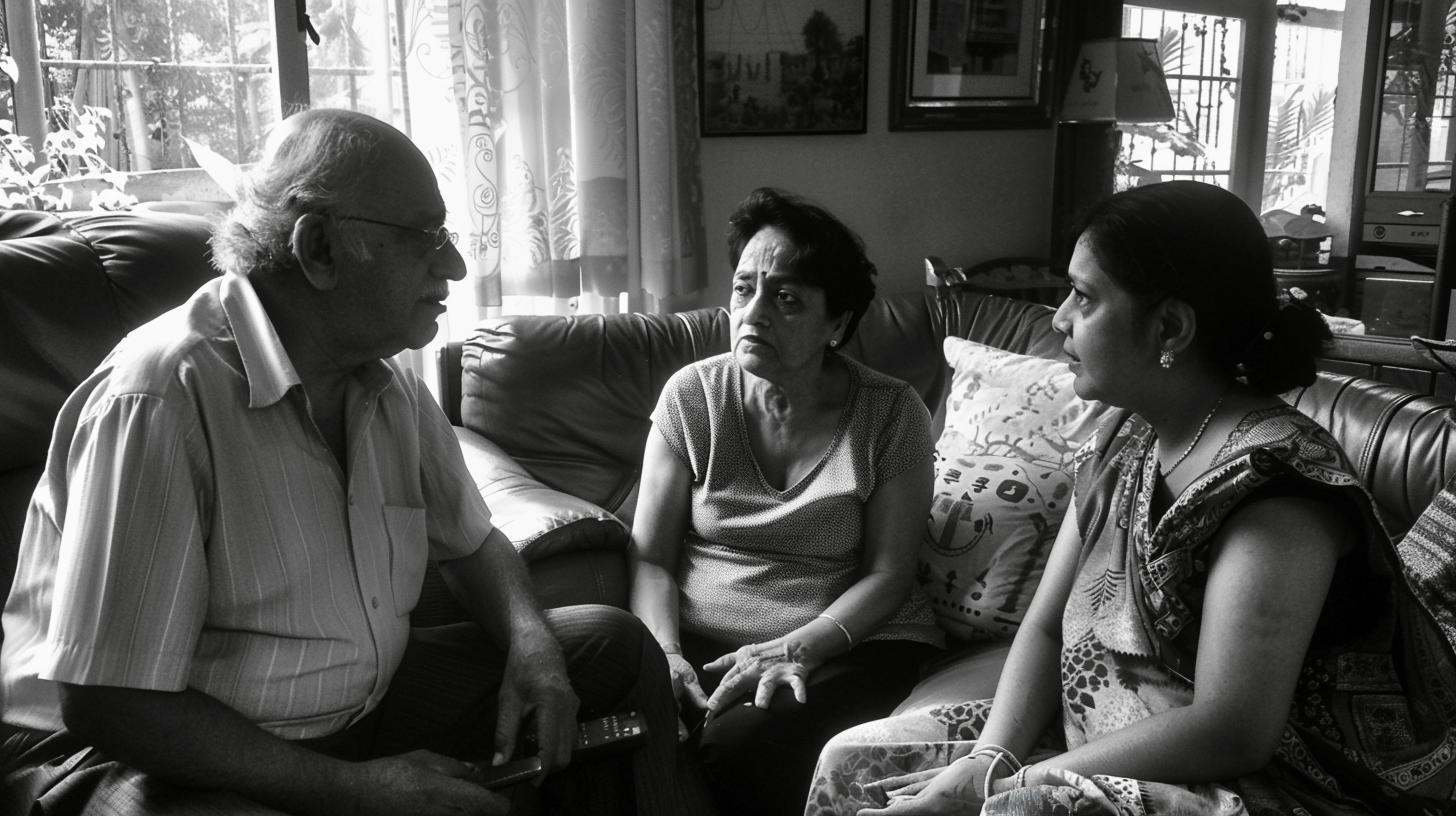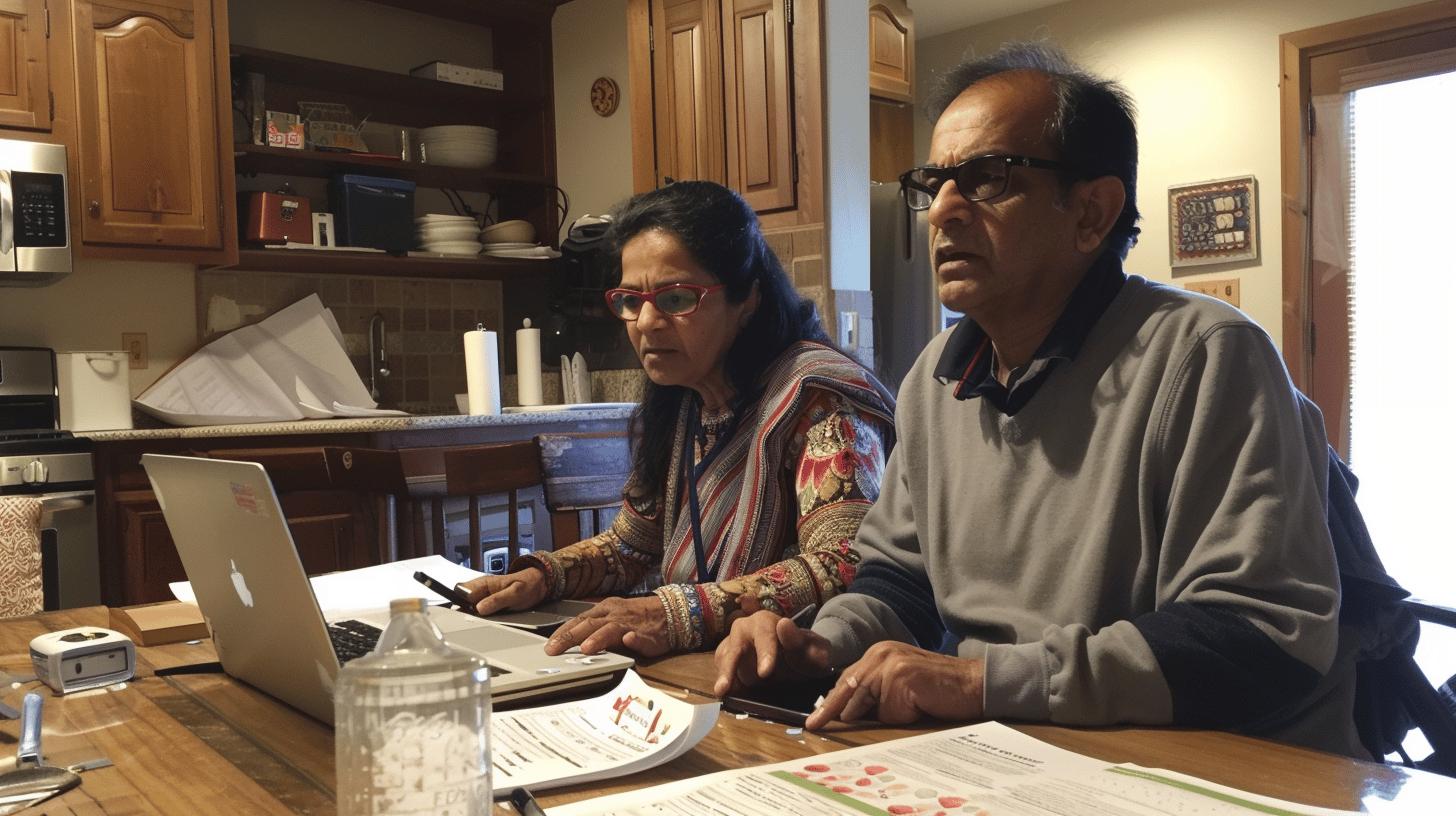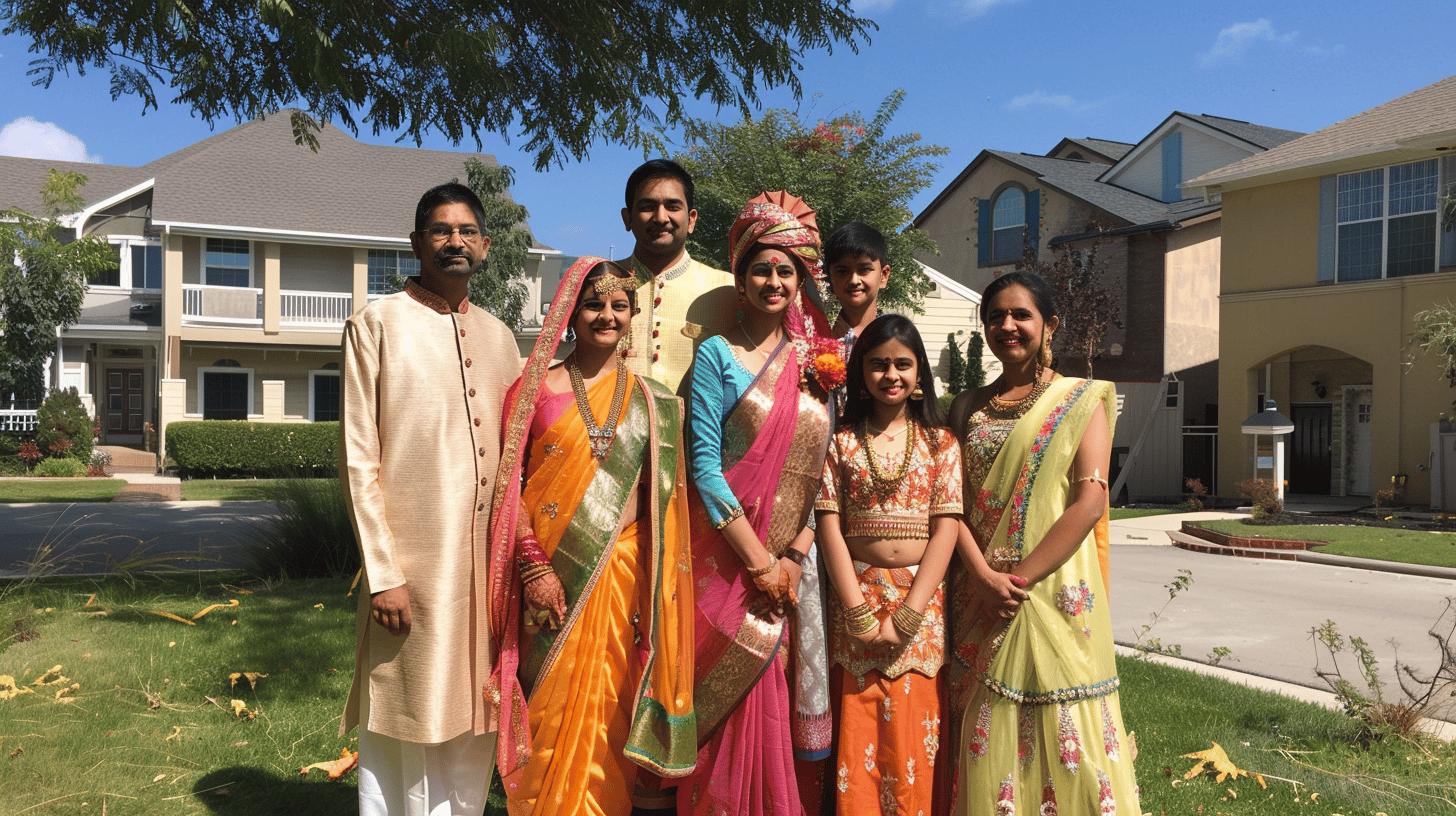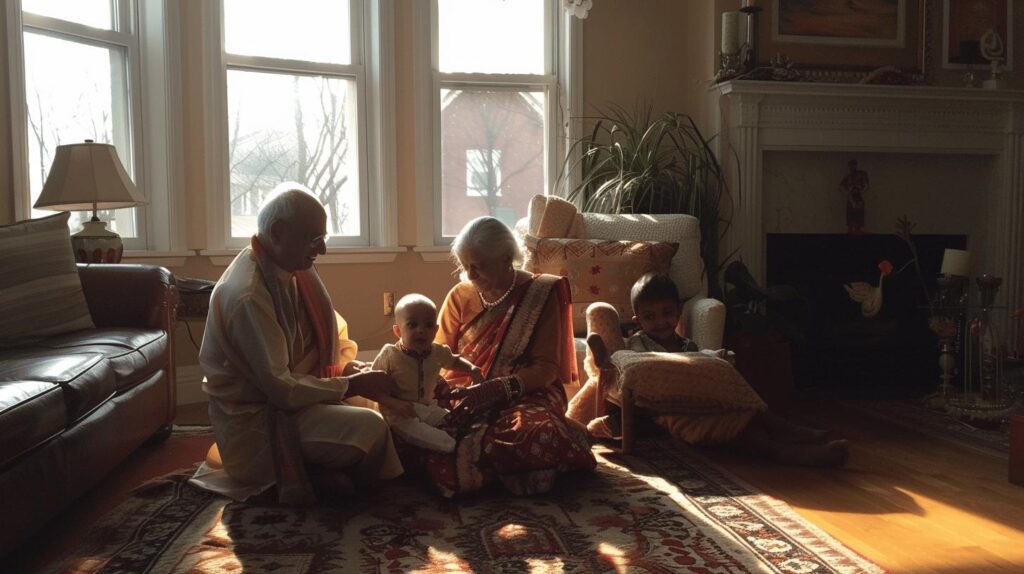How does one balance the preservation of rich cultural heritage with the demands of modern parenting? Parenting in a desi context, deeply influenced by Indian culture, involves a fine dance of traditional values, religious practices, and community expectations. For both new and experienced parents, understanding these dynamics can be crucial in raising children who are not only well-rounded but also proud of their roots. In this article, we delve into the intricacies of desi parenting, offering actionable insights on blending cultural heritage with effective parenting strategies.
Understanding Desi Parenting Dynamics
Cultural heritage plays a crucial role in shaping parenting styles within desi families. Indian culture, with its rich history and traditions, is passed down through generations, influencing how parents interact with and raise their children. This cultural heritage is not limited to first-generation immigrants; it also deeply affects subsequent generations. Desi parents often navigate cultural pressures, traditions, and community expectations, all while balancing modern influences.
Traditional values and religious practices are central to desi parenting. Values such as respect for elders, the importance of education, and a strong sense of family unity are emphasized from a young age. Religious practices, whether Hindu, Muslim, Sikh, or others, also play a significant role. These practices often include daily rituals, festivals, and community gatherings that reinforce cultural and moral values. For instance, celebrating Diwali or Eid together as a family not only strengthens familial bonds but also instills a sense of cultural pride and identity in children.
Typical desi family dynamics involve close-knit relationships and a communal approach to child-rearing. Grandparents, aunts, uncles, and even close family friends may all have a hand in raising a child, providing a robust support system. This communal approach ensures that children receive guidance and care from multiple sources, reinforcing cultural norms and values. However, it also comes with its own set of challenges, such as dealing with differing opinions on parenting styles and expectations.
- Respect for elders
- Importance of education
- Family unity
- Religious observance
- Community involvement
Traditional vs. Modern Desi Parenting Approaches

Traditional desi parenting is characterized by a strong emphasis on respect for elders, strict discipline, and adherence to cultural and religious norms. Parents often use authoritative methods to instill values such as obedience, academic excellence, and family loyalty. These methods have the advantage of providing clear guidelines and a stable framework for children, fostering a sense of security and belonging. However, they may also limit a child's ability to express individuality and pursue personal interests.
Modern desi parenting approaches strive to balance cultural heritage with the demands of contemporary society. Parents today are more likely to adopt a collaborative and flexible approach, encouraging open communication and personal growth. This shift is driven by the need to integrate into Western societies while maintaining cultural identity. Challenges include navigating cultural differences, managing community expectations, and finding a balance between traditional values and modern freedoms. Despite these challenges, modern approaches aim to create a nurturing environment that respects both cultural roots and individual aspirations.
| Aspect | Traditional Approach | Modern Approach |
|---|---|---|
| Discipline | Strict and authoritative | Collaborative and flexible |
| Communication | Top-down | Open and interactive |
| Values | Obedience and respect | Balance of tradition and individuality |
| Community Expectations | High and rigid | Balancing cultural and societal norms |
Influence of Indian Culture on Parenting Practices
Cultural traditions profoundly impact child-rearing practices in desi families. From birth, children are exposed to customs and rituals that emphasize respect, discipline, and community involvement. For instance, many families perform naming ceremonies or religious rites soon after a child's birth, instilling a sense of cultural identity from the earliest days. These traditions are not merely symbolic; they lay the foundation for a child's moral and ethical framework, guiding their behavior and interactions throughout life.
The role of the community and extended family in desi parenting cannot be overstated. Grandparents, aunts, uncles, and even close family friends often contribute to raising the child. This communal approach provides a robust support system, ensuring that children receive consistent guidance and care. It also reinforces cultural norms and values through multiple channels, creating a cohesive environment where cultural heritage is preserved and passed on. However, this can also lead to challenges, such as managing differing opinions on parenting styles and expectations.
Cultural festivals and rituals play a significant role in desi parenting. Celebrations like Diwali, Holi, Eid, and Vaisakhi are not just festive occasions but also opportunities to teach children about their heritage and values. Participating in these events helps children develop a strong sense of identity and belonging. Rituals and festivals also provide a structured way for families to spend quality time together, reinforcing family bonds and cultural pride. These events serve as practical lessons in community participation, respect, and the importance of maintaining cultural traditions.
- Naming ceremonies
- Religious rites
- Celebration of cultural festivals
- Involvement of extended family
Common Challenges in Desi Households

Desi parents often face significant social pressure and community criticism. The community's collective opinion holds considerable weight, influencing parenting decisions and family dynamics. When children pursue non-traditional career paths, parents may encounter unsolicited and critical comments from relatives and friends. This can create a stressful environment, making it challenging for parents to support their children's choices while maintaining community respect. The need to conform to societal expectations often leads to internal family conflicts and emotional strain.
High expectations related to education and career paths are another major challenge for desi parents. Academic excellence is highly valued, and children are often encouraged to pursue careers in fields like medicine, engineering, or law. This emphasis on traditional career paths can limit children's exploration of their interests and passions. Parents may struggle to balance their aspirations for their children with the need to support their individual talents. The pressure to excel academically can also lead to significant stress for both parents and children, affecting their overall well-being and mental health.
Balancing cultural identities is a common challenge in desi households. Children navigate between their cultural home environment and the broader American culture daily. This dual existence can create conflicts and misunderstandings, particularly regarding values, behavior, and lifestyle choices. Parents must find ways to help their children embrace their cultural heritage while integrating into a different society. This requires open communication, flexibility, and a willingness to adapt. Understanding and addressing these challenges can help parents support their children's growth and development in a multicultural context.
Role of Desi Parents in Education
Education holds a place of paramount importance in desi households. Parents prioritize academic achievement and view it as a gateway to future success and stability. This emphasis on education is deeply rooted in cultural values that equate academic success with honor and respect within the community. Desi parents often foster a rigorous academic environment, encouraging their children to excel in their studies and pursue higher education. This commitment to education is not merely about grades; it reflects a broader aspiration for upward social mobility and professional accomplishment.
Parental involvement in academics and school activities is a hallmark of desi parenting. Parents regularly engage with teachers, attend school meetings, and participate in parent-teacher associations to stay informed about their child's progress. They often provide additional academic support at home, such as tutoring and enrichment activities, to ensure their children meet high academic standards. This hands-on approach extends to extracurricular activities, where parents encourage participation in clubs, sports, and competitions to foster well-rounded development. By actively participating in their children's education, desi parents aim to create a structured and supportive learning environment that promotes both academic and personal growth.
- Attending parent-teacher meetings
- Providing additional tutoring
- Encouraging extracurricular activities
- Monitoring homework and grades
- Participating in school events and committees
Balancing Cultural Identities in Desi Parenting

Desi children navigate between their cultural home environment and the broader American culture daily, which can create significant challenges in maintaining cultural identity while integrating into a different society. Parents often face difficulties in helping their children embrace their heritage without feeling alienated in their social environments. Cultural identity conflicts may arise when children feel divided between the values and customs of their home and those of their peers. These conflicts can manifest in various ways, including differences in dress, language, and social behaviors, creating a need for thoughtful navigation and compromise.
To help their children balance cultural identities, desi parents can adopt several practical strategies. Open communication is crucial; parents should encourage their children to express their thoughts and feelings about their cultural experiences. Creating an inclusive home environment that celebrates both desi traditions and American practices can also foster a sense of belonging. Parents can also involve their children in cultural festivals and community events to reinforce their heritage while supporting their interests and activities in the broader society. Lastly, finding a support network of other desi families can provide additional resources and shared experiences, making the process of balancing cultural identities more manageable.
- Encourage open communication
- Celebrate both desi and American traditions
- Involve children in cultural festivals and community events
- Find a support network of other desi families
Emotional and Mental Health in Desi Families
Emotional support is a cornerstone in desi families, fostering a nurturing environment where children feel valued and understood. Desi parents need to prioritize listening to their children, recognizing that open communication is essential for emotional well-being. Emotional support within the family helps children navigate the complexities of growing up, providing them with a safe space to express their feelings and concerns. This support is crucial for building resilience and self-esteem, enabling children to face challenges with confidence. Parents can show emotional support by being present, showing empathy, and validating their children's emotions.
Breaking the stigma around mental health is vital in desi parenting. Depression and other mental health issues should be taken seriously, not dismissed as signs of weakness. Desi parents must understand that seeking professional help is a sign of strength and responsibility. By addressing mental health openly, parents can create a supportive environment where children feel comfortable discussing their struggles. This approach helps in early identification and intervention, preventing issues from escalating. Encouraging discussions about mental health and promoting self-care practices can significantly contribute to a healthier family dynamic, ensuring that children receive the support they need.
Final Words
Understanding desi parenting dynamics requires recognizing the strong influence of cultural heritage, traditional values, and community expectations.
Comparing traditional and modern approaches reveals unique strengths and challenges faced by desi parents.
Indian culture significantly shapes parenting practices, including the importance of extended family and cultural traditions.
Common challenges include social pressure, high educational expectations, and balancing multiple cultural identities.
Desi parents play a crucial role in their children's education and must also address emotional and mental health needs.
By navigating these complexities, desi parenting fosters a nurturing and supportive environment for raising well-rounded children.
FAQ
What is a Desi parent?
A Desi parent refers to a parent of South Asian origin, often emphasizing traditional values and cultural heritage.
What is the Indian style of parenting?
The Indian style of parenting is characterized by a focus on discipline, academic achievement, and respect for elders, often influenced by cultural and religious practices.
How to deal with strict Indian parents?
To deal with strict Indian parents, communicate openly, understand their concerns, and find common ground. Showing respect while expressing your views can help bridge the gap.
What is the meaning of Desi parents?
Desi parents are South Asian parents who uphold traditional values and cultural customs, often expecting their children to follow and respect these traditions.
Why does my daughter stay in her room all day?
Your daughter might stay in her room all day due to a need for privacy, avoiding conflict, or dealing with stress. Open communication can help understand her reasons.
When should I stop changing in front of my son?
Stop changing in front of your son when either he or you start feeling uncomfortable. Respecting privacy is crucial as children grow older.


